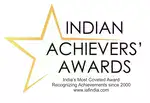In-depth Interviews vs. Focus Groups: The Battle of Qualitative Research Techniques
When conducting qualitative market research, two standout methodologies come to the forefront: in-depth interviews and focus groups. Both these approaches provide the capability to collect invaluable data, which can further be analyzed to derive insights into participant perspectives, behaviors, and attitudes. Each of these two types of qualitative research methods offers unique advantages, shaped by their distinct methodologies and applications. In today’s blog, we aim to dissect the fundamentals of in-depth interviews and focus groups, and figure out how you can make informed decisions tailored to your research objectives and needs by examining these descriptive qualitative research methods. Let’s get started!
What are In-depth Interviews And Their Benefits?
In-depth interviews involve one-on-one conversations between a researcher and a participant. These interviews are structured around open-ended questions that allow participants to express their thoughts, feelings, and experiences in detail. The focus here is to obtain rich, detailed insights into individual perspectives. Let us explore the benefits of in-depth interviews:
- Depth of Insight: In-depth interviews dive deep into the thoughts and emotions of participants, uncovering nuanced opinions that might not emerge in group settings.
- Personalization: Each interview can be tailored to the participant's responses, allowing for personalized exploration of topics.
- Flexibility: Researchers can adapt questions on a real time basis with respect to the participant responses, allowing for a more organic exploration of topics.
- Detailed Contextual Understanding: These interviews provide a rich understanding of the context surrounding participants' experiences, offering insights into their behaviors and decision-making processes.
- Trust and Confidentiality: Participants often feel more comfortable discussing sensitive topics in private interviews, fostering a deeper level of trust and allowing for candid responses.
- Exploration of Complex Topics: In-depth interviews enable a thorough exploration of complex or multifaceted topics that may require extended discussion and reflection.
- Opportunity for Probing: Researchers can probe further into interesting responses, encouraging participants to elaborate on specific points and clarify their perspectives.
What are Focus Groups and Their Benefits?
Focus groups involve a moderated discussion with a small group of participants (typically 6-10 individuals) who share similar characteristics or experiences. The discussion is guided by a moderator who poses open-ended questions to stimulate conversation and elicit group dynamics. Let’s take a look at the benefits of focus groups:
- Group Dynamics: Focus groups leverage group interactions to generate insights through collective discussion, revealing shared opinions, disagreements, and consensus.
- Synergy of Ideas: Participants can build on each other's responses, sparking new perspectives and ideas that might not emerge in individual interviews.
- Efficiency: Multiple participants can be interviewed simultaneously, making focus groups a time-efficient method for gathering data from diverse viewpoints.
- Exploration of Group Norms: Focus groups allow researchers to observe and analyze group norms, including how participants influence each other and conform to social expectations.
- Facilitation of Brainstorming: Participants in focus groups can engage in brainstorming sessions, collectively generating new ideas and solutions to challenges posed by the moderator.
- Enhanced Understanding of Non-verbal Cues: Focus groups provide opportunities to observe non-verbal cues such as body language, facial expressions, and gestures, offering deeper insights into participants' emotions and attitudes.
- Cultural Insights: Focus groups comprising participants from diverse cultural backgrounds can illuminate cultural nuances and perspectives on the topic being discussed.
- Social Support and Validation: Participants may feel validated by hearing similar experiences and opinions from others in the group, fostering a sense of social support and camaraderie.
- Real-time Interaction: Focus groups facilitate real-time interaction among participants, allowing for immediate reactions and discussions that can reveal spontaneous insights and reactions.
In-depth Interviews vs. Focus Groups: A Deep Comparison
Now that we know the benefits of in-depth interviews and focus groups, it’s time to compare each of these types of qualitative research methods deeply.
Depth of Data
In-depth Interviews: In-depth interviews excel in providing detailed and nuanced insights into individual perspectives, emotions, and experiences. These sessions are meticulously designed to explore personal narratives and delve into complex viewpoints, making them particularly valuable in qualitative market research. Researchers using this method aim to uncover deep-seated beliefs and motivations that shape participants' behaviors, leveraging descriptive qualitative research approaches to capture the richness of individual stories.
Focus Groups: Focus groups are adept at capturing the dynamic interplay of group dynamics and consensus opinions within a collective setting. This method excels in revealing shared beliefs, disagreements, and social influences among participants. By employing qualitative research firms to moderate discussions, researchers can extract valuable insights into collective attitudes and norms that inform broader market trends and consumer behaviors. This approach is invaluable in understanding the social context and cultural nuances that impact group interactions in qualitative market research.
Participant Interaction
In-depth Interviews: In-depth interviews foster intimate, one-on-one interactions between researchers and participants, fostering candid responses and in-depth exploration of topics. This method encourages participants to share personal experiences and insights comfortably, making it ideal for qualitative market research aimed at uncovering deep-seated beliefs and motivations. Using descriptive qualitative research techniques, researchers can dive deep into individual perspectives with precision, gaining a nuanced understanding of participant viewpoints.
Focus Groups: Focus groups facilitate interactive discussions among participants, stimulating conversation and debate that encourages the exploration of diverse ideas and perspectives. Group dynamics play a crucial role in shaping individual responses, as participants build on each other's contributions to uncover collective attitudes and behaviors. Employing qualitative research firms ensures effective moderation that promotes open dialogue and facilitates the exploration of social influences and group norms in qualitative market research.
Flexibility and Adaptability
In-depth Interviews: In-depth interviews offer researchers the flexibility to adapt questions in real time based on the participant responses, enabling exploration of unexpected insights and specific details. This adaptability is essential in descriptive qualitative research, where researchers aim to capture the depth and complexity of individual perspectives. Qualitative research firms experienced in moderating such interviews, can help your organization maximize flexibility while maintaining methodological rigor in qualitative market research.
Focus Groups: Focus groups provide flexibility in generating new ideas and perspectives through group discussions, leveraging collective brainstorming sessions to explore diverse viewpoints. However, this method may be less adaptable to individual participant needs compared to in-depth interviews. Effective moderation by qualitative research firms ensures that focus groups remain focused on research objectives, while fostering a collaborative environment that encourages creativity and innovation in qualitative market research.
Time and Cost Considerations
In-depth Interviews: In-depth interviews typically require more time per participant due to individual sessions focused on exploring detailed insights and personal narratives. However, they can be cost-effective for smaller sample sizes or when detailed qualitative research is critical to uncovering nuanced participant perspectives. Qualitative research firms proficient in conducting efficient interviews ensure that time and resources are optimized while achieving comprehensive data collection in qualitative market research.
Focus Groups: Focus groups offer time efficiency by gathering data from multiple participants simultaneously, leveraging group dynamics to explore diverse viewpoints in real time. However, this method may incur higher costs associated with moderation, venue rental, and participant incentives. It’s crucial to employ qualitative research firms experienced in managing focus groups. They can help ensure efficient coordination and moderation that will maximize the value of group interactions while managing costs effectively.
In-depth Interviews vs. Focus Groups: Which One is Suitable For Your Market Research Campaign?
Choosing between in-depth interviews and focus groups hinges on several key factors that shape the effectiveness of your market research campaign. Understanding these methodologies and their respective strengths will allow you to align them with your specific research objectives, budget and the nature of the insights required:
In-depth Interviews
In-depth interviews, often employed in descriptive qualitative research, provide a thorough understanding of participant viewpoints and are suitable for scenarios where depth of insight is paramount. Opt for in-depth interviews when your research demands a deep dive into individual perspectives and personal experiences. This method is ideal for uncovering nuanced insights that may not surface in group settings.
Focus Groups
Choose focus groups when exploring group dynamics, eliciting consensus, or fostering synergy of ideas among participants. This particular method leverages interaction and discussion within a group setting to reveal collective attitudes, shared beliefs, and social influences. Focus groups are beneficial for generating diverse perspectives simultaneously and exploring how participants influence each other's opinions. They are particularly effective in qualitative market research campaigns aimed at understanding cultural norms, social behaviors, and community reactions to products or services.
To determine the most suitable qualitative method for your market research campaign, evaluate the scope of your research objectives, participant availability, and the complexity of topics under investigation. In-depth interviews are valuable for in-depth exploration with individual participants, making them suitable for smaller, targeted studies. Focus groups, on the other hand, offer efficiency in gathering data from multiple participants concurrently but require careful management of group dynamics and logistical considerations.
Final Word
Among the many different types of qualitative research methods, in-depth interviews and focus groups stand out as valuable tools, providing unique perspectives and insights into participant behaviors, attitudes, and preferences. The choice between these methodologies should align with your specific research goals and the depth of understanding required to inform strategic decisions. To maximize the richness of data obtained and enhance the relevance of your market research findings, it’s crucial to work with reputable market research firms. When looking for the best qualitative research agency, your search ends here at Unimrkt Research. As far as qualitative data research is concerned, there aren’t many market research firms that can match the expertise and experience of our market research agency. Our ISO20252 and ISO 27001 certifications add further credibility to our reputation as a leader in qualitative data research. To learn more about how we can assist you, call us at +91-124-424-5210 or drop an email at sales@unimrkt.com. You may also fill out our contact form, and we will get back to you shortly.
Quick Enquiry
Customer Service, We Make it Better
Recent Posts
- How to Clarify and Align Your Research Goals for Maximum Impact
- Mining Valuable Data: The Driving Force for an Effective Growth Marketing Strategy
- Speaking the Customers Language: 7 Tips for Meaningful Qualitative Research
- Creating Value for Investors: The Benefits of Primary Market Research
- Utilizing Closed-Ended Questions For Quantitative Market Research
- Capturing the Changing Interests of Millennials Through Qualitative Research
- Refining Unit Economics with Robust Quantitative Market Research
- A Concise Guide to Quantitative Market Research
- 3 B2B Market Research Trends That Could Shape 2024
- Eyes on 2024: Changes That Might Disrupt the Healthcare Industry This Year
- Cracking the Language to Make Survey Questions Inclusive in 2024
- Attracting Investors: How Market Research Can Solidify Your Case
- Solid Foundations: Ways to Enhance Trustworthiness in Qualitative Research
- What Makes CATI Research So Effective?
- Moderator Qualities That Improve Qualitative Market Research
- 5 Consumer Market Trends That Will Define 2024
- What are the strengths of quantitative research?
- How to Make Your Partnership with Primary Market Research Firms Fruitful
- A Quick Guide to Harnessing the Strengths of Quantitative Research
- Advice from Your Research Partner: Don't Compromise Quality on Online Surveys













